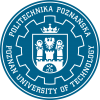HEAD OF DIVISION
In my professional work, I deal with the modification and characterization of crystalline surfaces and thin layers. Characterization is performed using microscopic techniques with a scanning probe (SPM), in particular ultra high vacuum scanning tunneling microscopy (UHV STM). I also deal with structuring processes, mainly with layered materials and thin semiconductor layers.
Ph.D., D.Sc. Wojciech Koczorowski, PUT Prof.
wojciech.koczorowski@put.poznan.pl+48 (61) 665 31 61
building A1, room 225
UHV STM LAB
SENSOR LAB
GO TO THE EMPLOYEE’S PAGE IN THE PUT GUIDE
SCIENTIFIC STAFF
I deal with the issues of surface physics, production, and characterization of the physical properties of nanostructures using the methods of scanning microscopy and sample spectroscopy (STM / S and AFM). Research, in general, is related to the applications of systems mentioned above in nanoscience and nanotechnology.
Prof., Ph.D., D.Sc. Ryszard Czajka
ryszard.czajka@put.poznan.pl+48 (61) 665 32 34
building A1, room 516
UHV STM LAB
GO TO THE EMPLOYEE’S PAGE IN THE PUT GUIDE
I deal with the production and characterization of thin-film semiconductor compounds and modern 2D structures. I study their electrical properties for application in simple electronic devices such as magnetic field sensors. I am interested in developing and modifying the construction of sensors to adapt them to work in an extremely difficult environment.
Ph.D. Semir El-Ahmar
semir.el-ahmar@put.poznan.pl+48 (61) 665 32 35
building A1, room 522
SENSOR LAB
GO TO THE EMPLOYEE’S PAGE IN THE PUT GUIDE
My main research tool is low-temperature scanning microscopy and tunneling spectroscopy. I select the tested systems and systems in terms of current and important applications for the development of nanoelectronics, e.g. 2D layered materials from the TMD group, or 2D surface alloys of rare earth metals with precious metals.
Ph.D. Tomasz Grzela
tomasz.grzela@put.poznan.pl+48 (61) 665 31 84
building A1, room 518
UHV STM LAB
GO TO THE EMPLOYEE’S PAGE IN THE PUT GUIDE
I research objects on the nano and micro scale. The tested objects are, for example, carbon nanotubes or silver nanoparticles. Currently, I also carry out nano/microlithography on selected surfaces such as Bi2Te3 or Sb2Te3.
Ph.D. Maciej Kamiński
maciej.kaminski@put.poznan.pl+48 (61) 665 31 84
building A1, room 518
EDU LAB
GO TO THE EMPLOYEE’S PAGE IN THE PUT GUIDE
I deal with microscopy (optical, electron, and AFM) and nanomechanical research. I conduct scientific research in cooperation with many research groups from PP, AMU, and outside Poland. The materials most often analyzed by me are polymers and their composites as well as new hybrid materials.
Ph.D. Marek Nowicki
marek.nowicki@put.poznan.pl+48 (61) 665 33 30
building A1, room 519
EDU LAB
GO TO THE EMPLOYEE’S PAGE IN THE PUT GUIDE
I am involved in the production of two-dimensional surface alloys of rare earth metals with platinum on the surface of a single crystal of platinum and the study of their structural, electronic, and magnetic properties on the atomic scale. Two-dimensional surface alloys are an interesting group of materials that can be used as a substrate in spintronics or molecular electronics.
Ph.D. Marta Przychodnia
marta.przychodnia@put.poznan.pl+48 (61) 665 32 35
building A1, room 522
UHV STM LAB
SENSOR LAB
GO TO THE EMPLOYEE’S PAGE IN THE PUT GUIDE
I focus on the analysis of the electrical properties of layered materials such as Dichalkogenki of Transition Metals. In addition, he deals with the procedures for structuring these materials along with their full characterization, using for this purpose the Hall effect and TLM measurements, AFM microscopy, and the Raman scattering phenomenon.
Ph.D. Jan Raczyński
jan.raczynski@put.poznan.pl+48 (61) 665 33 30
building A1, room 519
SENSOR LAB
GO TO THE EMPLOYEE’S PAGE IN THE PUT GUIDE
PHD STUDENTS
My research interests include the production, characterization, and modification of layered materials (mainly transition metal dichalcogenides). As part of my doctorate, I deal with the production and investigation of surface properties of hybrid systems containing 2D materials.
M.Sc. Katarzyna Kwiecień
katarzyna.kwiecien@doctorate.put.poznan.pl +48 (61) 665 31 84 building A1, room 518 UHV STM LAB
I study the electronic properties of binary semiconductor compounds. I optimize the processes for obtaining thin InSb layers as well as layered TMD materials. The produced structures are characterized using Hall effect measurements.
M.Sc. Piotr Kałuziak
piotr.kaluziak@doctorate.put.poznan.pl +48 (61) 665 33 30 building A1, room 519 SENSOR LAB
During my doctoral research, I study the impact of intense neutron radiation on magnetic field sensors, where graphene is an active layer. I investigate how the electrical response of these systems changes under such extreme conditions. My primary interest lies in exploring the interaction mechanisms between neutrons and matter through both experimental methods and computer simulations.
M.Sc. Wiktoria Reddig
wiktoria.reddig@doctorate.put.poznan.pl
+48 (61) 665 32 35
building A1, room 522
SENSOR LAB
STUDENTS - 2nd degree
STUDENTS - 1st degree
Arkadiusz Przybysz
Optimization of parameters to obtain the atomic structure of MoS2 using a scanning tunneling microscope
EDU LAB


